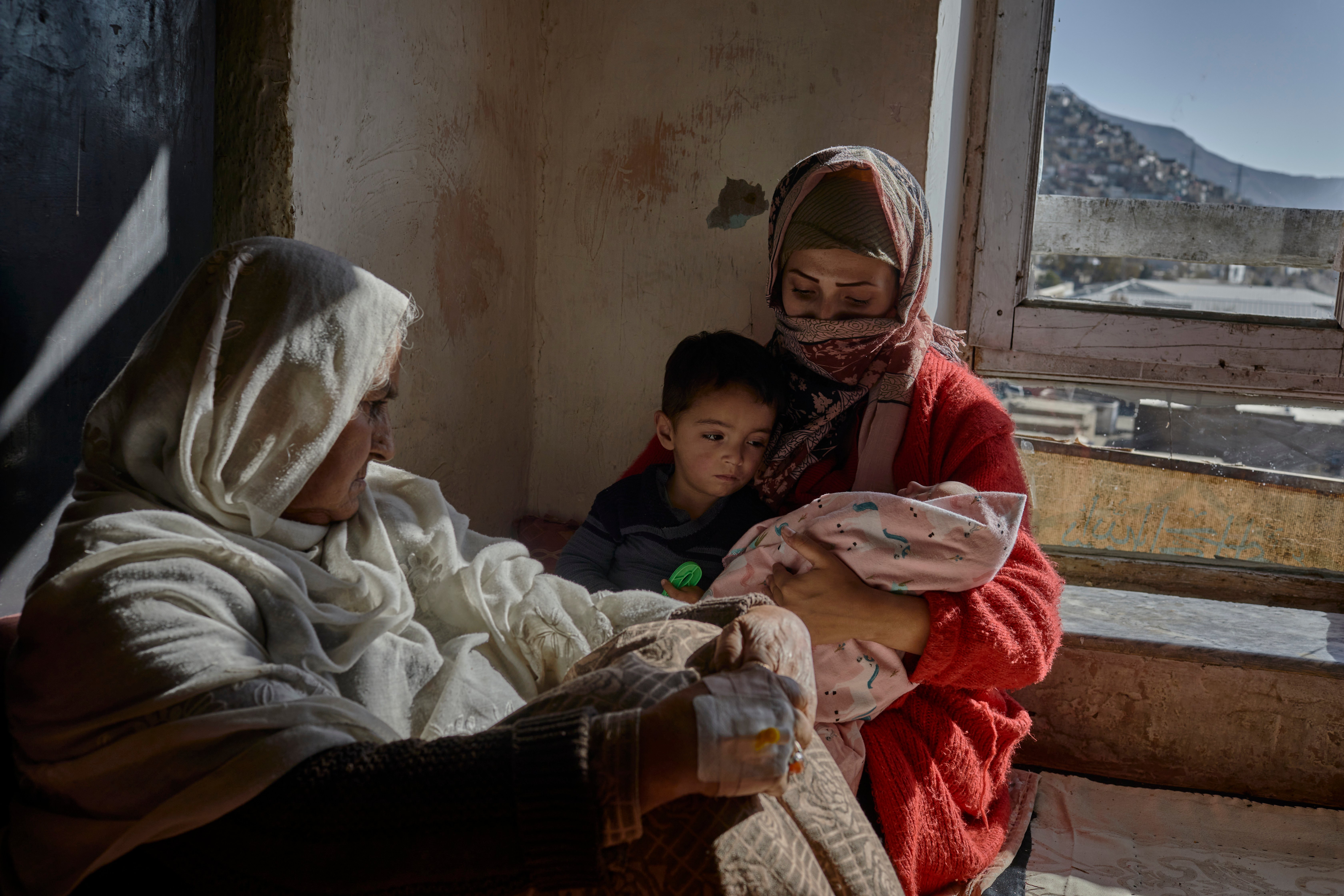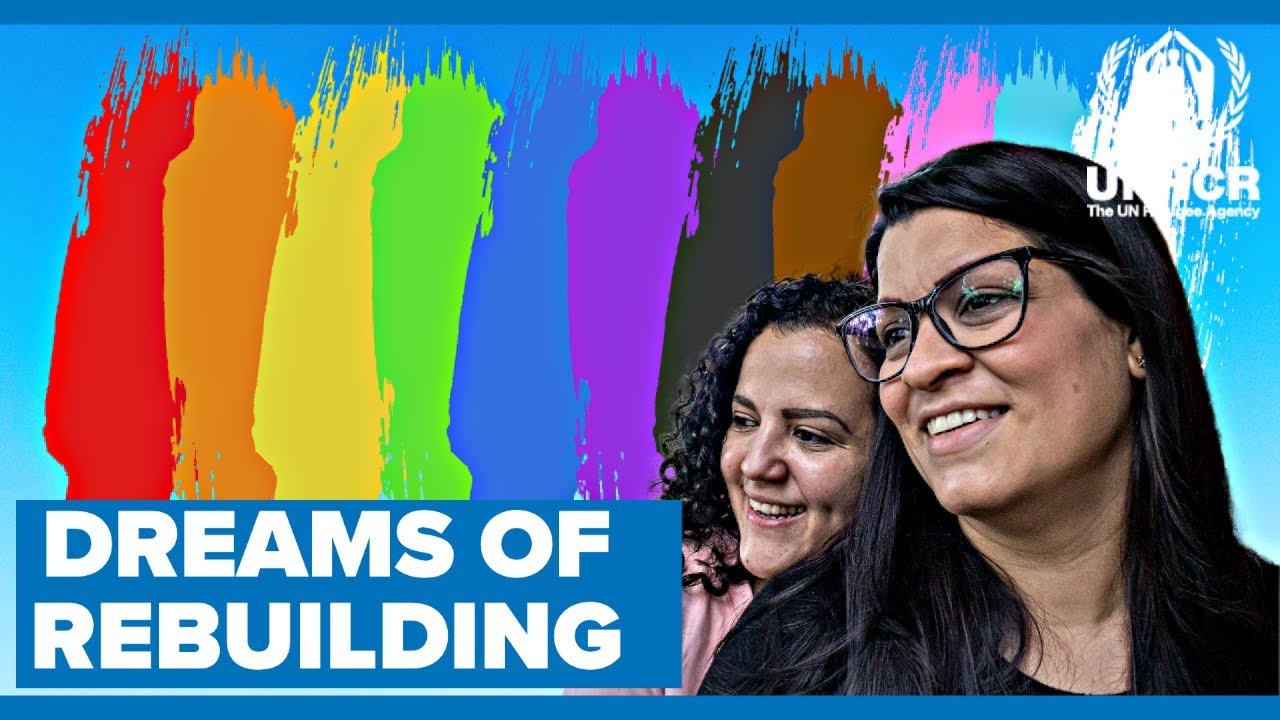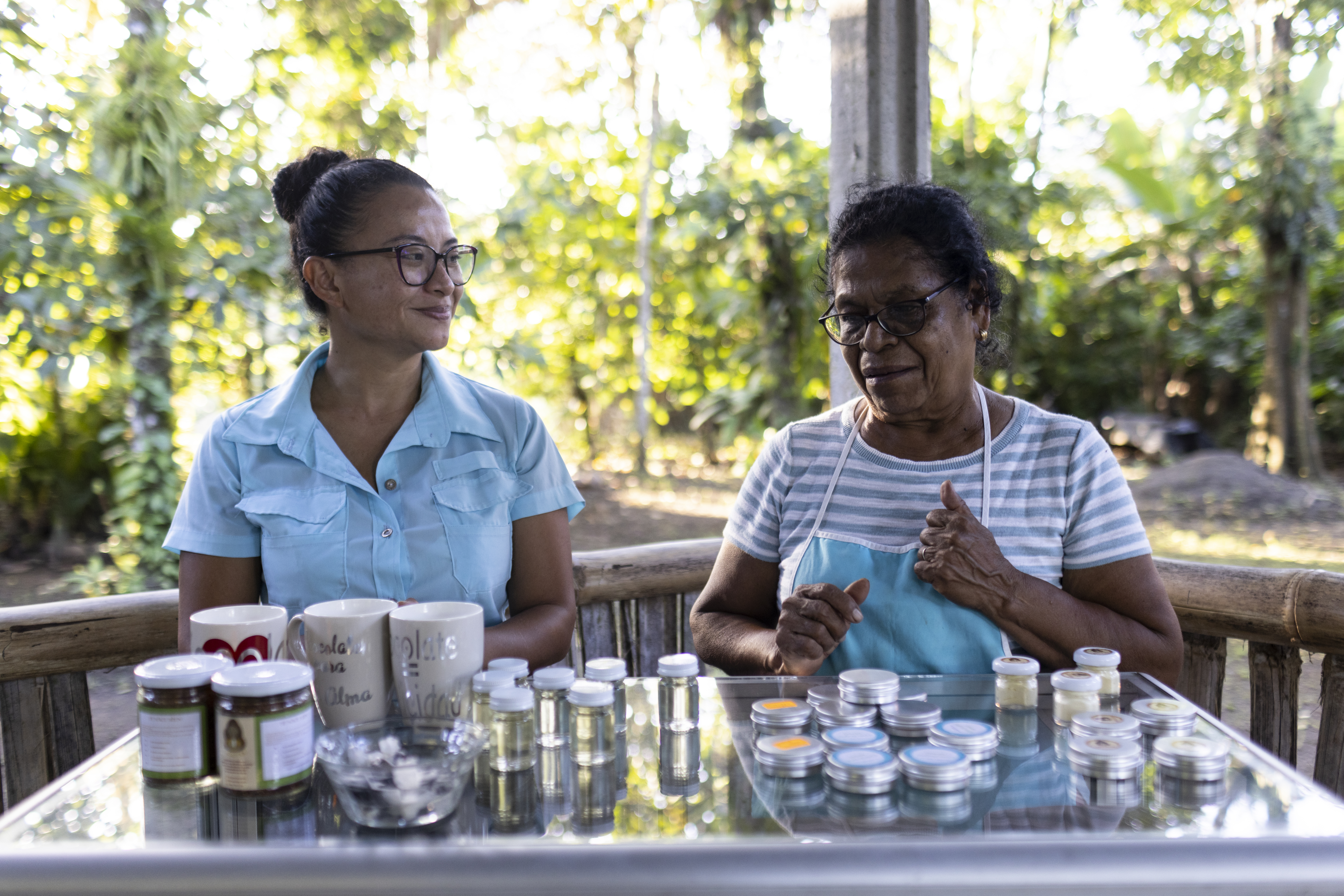Q&A: Aid worker beats biases in Balochistan
Q&A: Aid worker beats biases in Balochistan

QUETTA, Pakistan, August 22 (UNHCR) - For most of her life, Surriya Kasi has battled biases within her home and community to pursue her quest for education and a career in conservative Balochistan, south-western Pakistan. With a Masters in Sociology and 25 years of service to Afghan refugees, the UNHCR Associate Programme Officer in Quetta has paved the way for other women in her community. She shares her experiences with the Public Information section's Duniya Aslam Khan. Excerpts from the interview:
What are some of the early obstacles you faced as a girl in Balochistan?
In a conservative society like mine, people become socially isolated when they take daring steps and go against social norms. If you are a woman, your family and neighbours can abandon you for being a maverick. Working women, even now, are soft targets of harassment.
I was lucky that both my parents were supportive. My mother played an important role in my academic life. The first barrier was inside our home: my grandmother threatened to leave the house if we [Kasi and her sister] ever went to school. This stiff resistance left my elder sister uneducated. Grandmother died before I started school.
During my school and college years, the neighbouring women would stand in their doorsteps or peep through their doors to see me going to school and later to gossip about it. My male cousins tried to convince my father that girls' education was not important at all.
Did the challenges change when you started working?
Working women are often perceived as immodest and unchaste. My family had to move to another neighbourhood when I joined UNHCR as a Programme Assistant in 1982. My brothers were criticized by the community for supporting our education and employment. After marriage the challenges double, even if one's husband is supportive. It is always the extended family posing objections to your job. You have to struggle hard to keep a balance between your personal and professional life.
Working for refugees has always been a challenging task. It was even tougher back in the '80s in Balochistan, with the daily influx and over 70 refugee camps scattered across Pakistan's largest province. Then, UNHCR did not have any official accommodation in the field. For a woman with tribal roots like me, working for an international organization with foreigners, going to the field with them, staying there overnight were the biggest difficulties I faced. We had to either live with refugees in their tents and mud-houses or sleep in the government rest houses.
To prove myself as competent as my male counterparts, I had to work even harder; a small mistake by a woman is often blamed on gender ineptitude. However, the thing I appreciate in UNHCR is the gender equality and the encouraging and supportive working environment it provides for all staff.
Were there advantages to being a woman in the field?
Afghan refugees are protective of their women and do not allow outsider males to see them. As a woman, I have the advantage of interacting with both males and females. Female staff are welcomed inside the refugees' house, and therefore have a better chance of observing their lives closely. Afghan refugee women speak their hearts to me - they talk about their ailments, their domestic problems and their children. I can therefore effectively provide for their needs.
Over the years, the refugees have realized the importance of education. I am pleased to see their acceptance of girls' education. Almost 100 percent of our female teachers in refugee villages are from within the refugee community. UNHCR is supporting primary education in 10 refugee villages in Balochistan, where currently 14,000 children are enrolled, 4,000 of them girls.
I've also noticed that Afghans are now more health conscious. Newborns were traditionally kept in the house for 40 days. But now parents are keen to take them to the Basic Health Units (BHU) for vaccination. Women are also more concerned about family planning, pre- and post-natal care.
In your view, what is the way forward for one of the world's most protracted refugee situations?
The challenges we face are enormous, from decreased budgets to the challenge of providing education particularly for female refugees.
Over time, they have adapted and learnt the art of survival. They've even brought new agricultural techniques that increased crop productions in Balochistan. Self-reliance is crucial. We have shifted our focus from traditional care and maintenance to more sustainable development through a community-based approach to help refugees actively participate in community development projects.
Pakistan has been hosting Afghan refugees for some 29 years now, and refugees have been criticized for exploiting local resources. In response, UNHCR and the government have started the Refugee Affected Host Areas (RAHA) project. It seeks to address the social, economic and environmental effects of the prolonged presence of Afghan refugees, and to ensure that locals and refugees benefit equally from the rehabilitation of facilities like water systems, schools and clinics.
Any regrets for choosing a maverick's life?
The price an individual pays for being different is sometimes life-long, but when you look back and see people following your footsteps, it makes you forget about the sufferings.
I miss not having children, but it gives me immense pride when parents present me as a role model to their daughters. The people who used to oppose my education and career are now sending their girls to school. I feel proud to see that today my tribe is considered one of the very few progressive, enlightened, and educated tribes of Balochistan.
The bold steps I took have opened doors for other women of my community. The sacrifices I made and the stress I went through did not go in vain. I do not have any regrets because my sacrifices are bearing fruit.









